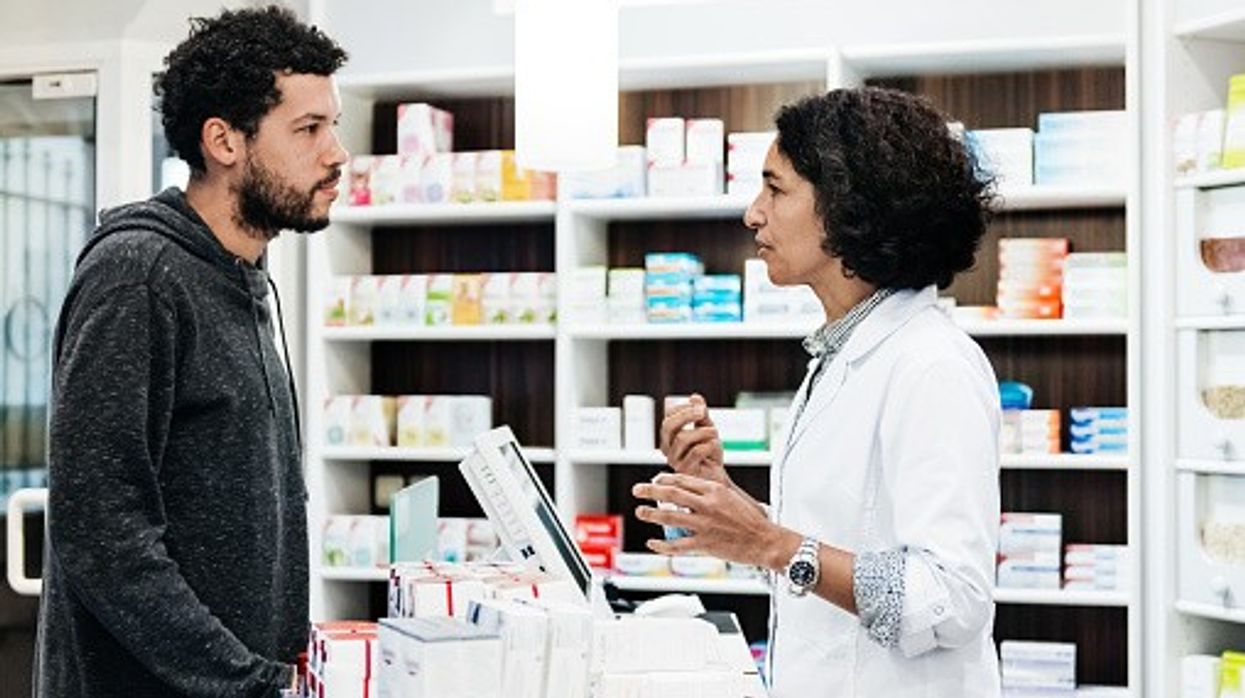A health-economic summary report has concluded that poor health literacy is a major challenge to self-care with opportunity for pharmacists to play a more prominent role.
The study, by GSK Consumer Healthcare and Vintura, reveals the barriers and opportunities to people managing their everyday health.
Titled ‘The Health-Economic Benefits of Self-care in Europe’ the report is based on insights collected in a literature research with circa 300 scanned articles and interviews with relevant stakeholders.
It found four key barriers that Europe must address in order to improve everyday health for one and all: health literacy, investment in preventive healthcare, awareness of self-care by healthcare professionals (HCPs) and access to over-the-counter medicine in some markets.
Self-care could evolve healthcare in Europe, delivering benefits such as enhanced quality of life to individuals, communities and wider society.
In a post-pandemic world, selfcare can help ease the burden on health systems by keeping people healthy and reducing visits to doctors. For example, in the UK, the average waiting time to get an appointment with a general practitioner (GP) is 13 days, whilst 18 million GP visits every year are for conditions that are self-treatable.
It’s about health literacy
The vast majority of people consider it important to take their health into their own hands to relieve pressure on healthcare systems: Spain 84% (16- 65 years of age), UK 77% (16-75 years of age), Italy 75% (16-70 years of age), Germany 63% (aged 16-75 years of age). However, the Health-Economic Benefits of Self-care in Europe study shows there is opportunity to empower people to engage in self-care.
Investment in preventive healthcare
Although 80% of Europeans accept that it is their responsibility to manage their own health and are willing to do so, nearly half (47%) of the adult population possess an inadequate or insufficient health literacy. With only 2 in 10 Europeans feeling ‘very confident’ in managing their own health, there is a clear need to provide the public with trusted, reliable and consistent healthcare advice and services, as and when needed.
Although annually around 80% of Europe’s health budget has been spent on chronic diseases in past years, only 3% has been spent on prevention. Investing more in health literacy to enable responsible self-care will allow individuals to foster healthy behaviours that contribute to prevention such as staying in good health, detecting a disease at an early stage, or reducing disease severity.
An opportunity to engage pharmacists and healthcare professionals
With self-care positioned across prevention and treatment, there is also an opportunity to provide support to healthcare professionals and to individuals. Empowering healthcare professionals is equally important as empowering individuals. In many European countries, doctors receive little training on over-the-counter (OTC) medicines meaning they do not always have them on their agenda as a first-line option to recommend to patients.
In terms of education, pharmacists play a key role as enablers too. Across Europe, pharmacists are the in suppliers of OTC products, meaning they are well positioned to enable self-care. As of 2016 around 58% of Europeans are able to access a pharmacy within 5 minutes of their location. The combination of location and accessibility means that most consumers have ready access to a health professional’s advice, on demand.
However, the perception and trust in pharmacies varies across Europe revealing an opportunity to raise awareness of the skills and expertise of pharmacists. Especially taking into account that 48% of Brits, 46% of Italians, 45% of Spaniards, and 27% of Germans intend to use a pharmacist more in the future to give advice about how to treat minor health concerns like joint/movement pain, headaches, skin rashes or colds and flu.
Different countries, different access
Access to OTC medicines differs across Europe – resulting in sometimes unequal access to products across the region – meaning there is also an opportunity for increased collaboration and adoption of best practice among European countries.
Jon Workman, Area General Manager UK & Ireland at GSK Consumer Healthcare, said: “We have seen consumer attitudes and behaviours shift when it comes to self-care, expedited by the Covid-19 pandemic. There is a greater recognition that pharmacists can help treat a number of minor ailments and we want to encourage the nation to take greater control of their own self-care. As indicated by this latest study, we need to work closely with our pharmacy colleagues to help improve shoppers’ health literacy and empower people to manage their everyday health with confidence.
“As a top consumer healthcare company, delivering global leadership across a broad spectrum of therapeutic areas, we are committed to leveraging our strengths to provide the best service to our retail partners and further support our commitment to helping consumers take more control of their health, particularly as we come out of the other side of this pandemic. Our long-term self-care movement aims to shift the behaviours of the nation – getting people to think pharmacy first and avoid unnecessary visits to the GP and A&E in the longer term.”
Professor Lieven Annemans (PHD), Senior full professor health economics, Ghent University, Faculty of Medicine and Health Sciences, Department of Public Health and Primary Care said: “Research shows that health literacy is one of the greatest barriers to self-care. There is, however, keen public interest in self-care, with many wanting to improve the way they manage their own health. But thereto more support and guidance is needed.
“Better health literacy creates empowered individuals who can take better control of their own health and make the right choices. There is a clear opportunity for governments, health systems, regulators and healthcare professionals to work together to remove this barrier in order to enable people to engage in self-care with confidence.”











